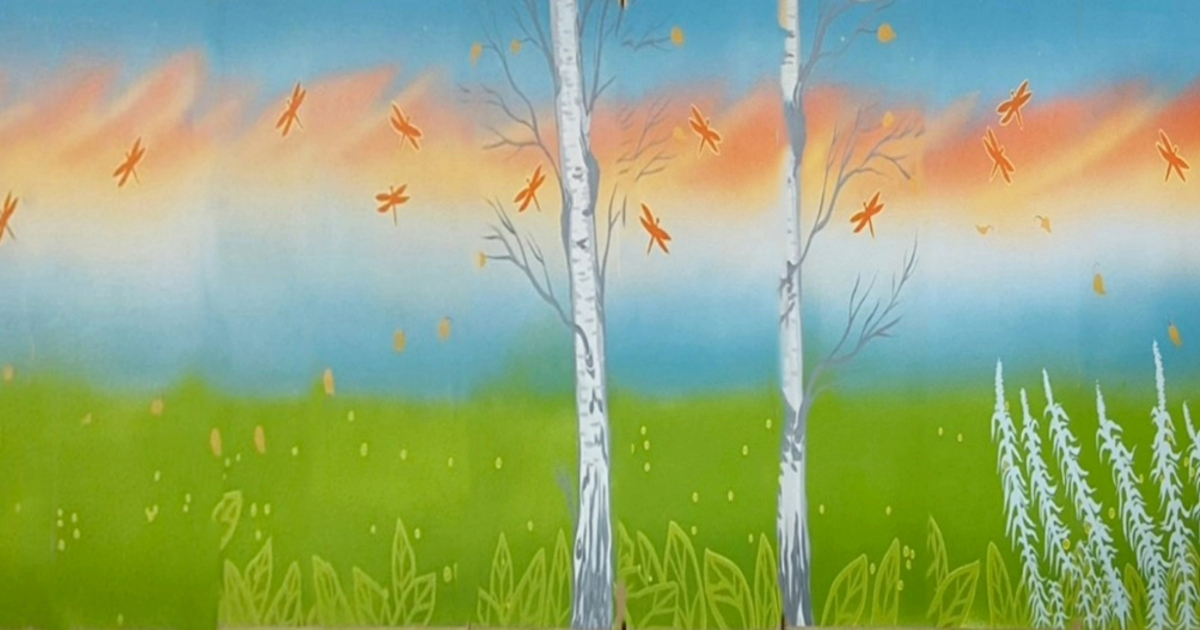
Artwork by Gayle Sinclair
UM apologizes to First Nations, Métis and Inuit descendant communities
Rematriation efforts are underway
“The University of Manitoba recognizes that healing begins with this university apologizing to the people we have profoundly hurt and deeply harmed through our actions.”
On Monday afternoon, UM President and Vice-Chancellor Dr. Michael Benarroch stood before a crowd of Indigenous students, staff, faculty, community members and allies to publicly apologize for the university’s history related to the inappropriate acquisition and housing of Indigenous ancestral remains, burial belongings and cultural heritage.
The President’s apology went on to say that “these actions broke a basic principle of our shared humanity: a loved one buried for eternal rest, must remain at peace.”
Rematriation involves returning Indigenous Ancestors and Belongings – that have been taken and/or held at UM without consent – to First Nations, Métis and Inuit descendant communities. These efforts have begun at UM through engagement with community leaders and Elders.
“I always tell people that this is painful. This is not like other kinds of work. This is painful every time,” says Pahan PteSanWin.
Pahan is one of three co-chairs of the Respectful Rematriation and Repatriation Ceremony at the University of Manitoba, alongside Lara Rosenoff Gauvin (Department of Anthropology) and Lorena Sekwan Fontaine (Department of Indigenous Studies) and formerly Cary Miller (Department of Indigenous Studies).
In the fall of 2019, the Department of Anthropology reached out to Indigenous faculty, staff and Elders at the university to inform them that the university was in possession of Indigenous Ancestors and Belongings and to offer an apology. They were asked to help make things right.
A group of UM Elders, Grandmothers, Grandfathers and Knowledge Keepers agreed to form the Respectful Rematriation and Repatriation Ceremony Council (RRRC Council) to assist the university and provide ongoing guidance.
“My role has been to bring forward the perspective of the Council,” says Pahan. “I support them, share information with them and ensure their voices are heard. The way we work as Indigenous people is very different from how the university works, so it’s a little like being a translator.”
The RRRC Council urged the university to return and rebury the Ancestors as quickly as possible and gave direction on how to respectfully care for the Ancestors in the meantime.
“Rematriation must take place in our own ways guided by First Nations, Métis and Inuit people,” says Pahan.
The Council also emphasized the need for the university to accept responsibility for its violent actions, commit to truth-telling and develop a university-wide repatriation policy. Since the Department of Anthropology came forward in 2019, both Ancestors and Belongings have been identified in other units throughout UM.
Head of Indigenous Studies and RRRC co-chair Lorena Sekwan Fontaine says this process is part of restoring dignity and honouring the people, communities and nations that have been wronged.
“Both the apology and the policy are essential steps in addressing the historical injustices inflicted on First Nations, Inuit and Métis communities,” says Lorena. “An apology acknowledges the colonial violence, and the policy provides a framework for respectful repatriation. Together, these actions are critical in repairing relationships between the university and Indigenous Peoples.”
Co-chair Lara Rosenoff Gauvin, an associate professor with the Department of Anthropology, has been involved in the Respectful Rematriation and Repatriation Ceremony since she started at UM in 2019.
“I believe that heritage holding institutions must come to terms with their complicities in violence to truly commit to relational repair,” says Lara. “I don’t think institutions can speak of Reconciliation if they are holding Indigenous Ancestors and Belongings without consent.”
The Respectful Rematriation and Repatriation policy and wise practices/guiding procedures have been created to acknowledge the university’s history; ensure that rematriations are completed; and as a commitment that these offensive practices will never happen again.
The policy was written by a working circle made up of Indigenous scholars, Indigenous community representatives and other UM community members over the past two years.
The RRRC Council says the rematriation work at the UM is Ceremony and can be an opportunity to learn how to walk together in peace.
“Colonial violence hurts everyone, Indigenous and non-Indigenous people alike,” says Pahan. “It robs us of our humanity. We all need a chance to heal from that.”
“I am grateful to the council of Elders, Knowledge Keepers, Grandmothers and Grandfathers who have been leading us—teaching us—how to be in right relationship with Indigenous peoples,” says President Benarroch. “We are committed to transforming our institution. We recognize we must change, and we are changing.”
To learn more about Respectful Rematriation and Repatriation Ceremony visit the RRRC webpage.
The Hope for Wellness Helpline is available to all Indigenous people across Canada. Experienced and culturally competent counsellors are available 24 hours a day, 7 days a week at 1-855-242-3310 or via online chat at www.hopeforwellness.ca. This service is available 24/7 in English and French and upon request in Cree, Ojibway and Inuktitut.






